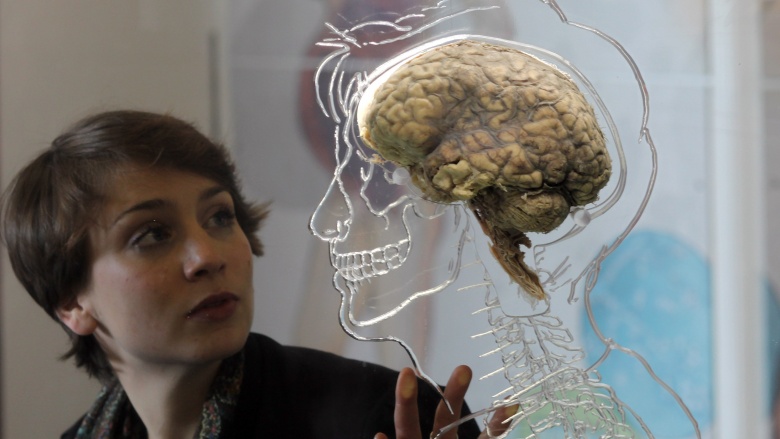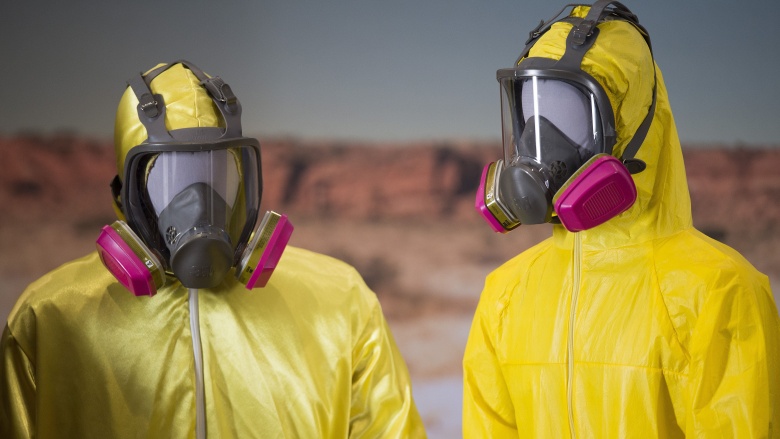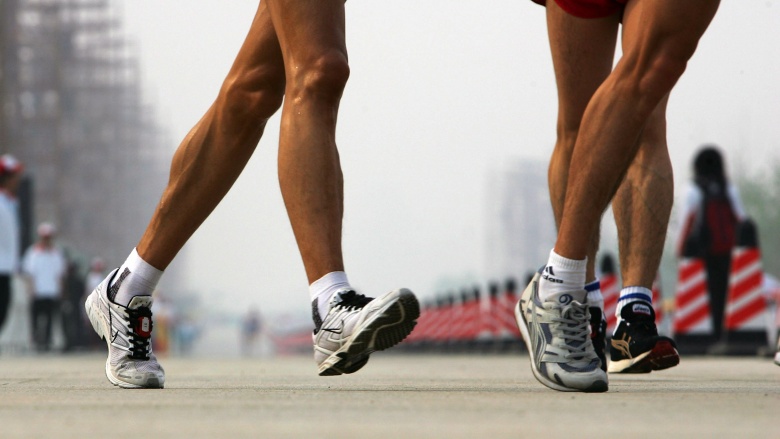Strange Things Your Body Does Without You Knowing
The human body is capable of some amazing stuff, and some strange stuff too. But strangest by far is all the junk that goes on without us even realizing it. Here is a relatively short list of the things the human body does literally right under our noses.
Laughter kills pain
That's right. If you ever stub your toe, don't scream and curse. Laugh it off. When we laugh, our bodies release endorphins, which are painkillers produced by the nervous system and pituitary gland. (And as anyone with an active lifestyle knows, they make you feel kind of high.) But there's a bit more to it than that. According to Scientific American, scientists found that endorphins can increase pain tolerance too. This works best when laughing as part of a group, like at a comedy show. So laughter isn't just the best medicine, it's the best preventative medicine, too.
Blushing
When we're scared by something or see someone we really like, we all tend to blush a little. While we know about getting a little red in the face, not many know why. When we blush, the capillaries in our cheeks widen, allowing more blood to flow through. Also, the cheeks contain more of these blood vessels than any other part of the body. Because of their numbers and proximity to the skin's surface here, the widening causes our skin to take on a rosy hue. Scientists have yet to determine exactly why this phenomenon occurs, but one thing's for sure. Like Darwin said, blushing is "the most peculiar and most human of all expressions."
Earwax is a great cleaning agent
Earwax can be annoying. But it serves an important purpose regarding health. According to a 2009 Malaysian health study, researchers found that earwax is great at fighting bacteria, fungi, and viruses. It's even strong enough to fight Staphylococcus aureus (better known as a Staph infection) and possibly Escherichia coli (or E. coli), among other dastardly diseases. But don't go thinking cerumen (earwax's scientific name) is a miracle cure. Too much of it can cause infections and hearing loss. Did you get all that, or you got wax in your ears? Or, in the case of this article, wax in your eyes? Also: gross.
The brain isn't always in control
Rapid eye movement sleep, or REM sleep, is when we dream the most. It's also a time when all bets are off concerning bodily control. According to Systemic Homeostasis and Poikilostasis in Sleep, by Pier Luigi Parmeggiani, blood pressure, heart rate, body temperature, breathing, and some other bodily functions become erratic when we enter REM sleep. In other words, the brain loses total control, and our bodies do whatever they want. Okay, that's not entirely true. But the brain does slack off a bit, and the body compensates as necessary for the lack of cranial regulation. For example, you might shiver to create warmth during this kind of scenario. Who'd've thought the brain needed a babysitter?
We shrink during the course of the day
Sandwiched between each vertebra of the spinal column is an intervertebral disc. These discs function as the shock absorbers of the spine, but as we go about our days, the discs get compressed and fluid is squeezed from them. (Don't worry. It gets reabsorbed when we sleep.) According to several sources, how much height we lose during the day varies from one centimeter to almost an inch, depending on how active a person is while he or she is awake. So if you're above six feet tall, it's not big deal. But if you're five feet or shorter, look out...
Your head makes noises
Ever hear an explosion when you're about to fall asleep? Don't know where the noise originated? Don't worry. You're not crazy. You've just experienced something called exploding head syndrome, or EHS. Despite what the name may imply, it has nothing to do with your head actually exploding. According to the website No Sleepless Nights, this benign disorder's name comes from the kinds of noises heard by those who experience it. Scientists have yet to determine what causes it, but there is good news. If your sleeping partner blames you for making loud noises that wake them up, you can blame it on exploding head syndrome.
The body is a pharmaceutical factory
Okay, the body may not be a drug lab, but it can make its own aspirin. According to a 2008 issue of the Journal of Agricultural and Food Chemistry, scientists in Britain found that people who ate fruits and vegetables high in benzoic acid had salicylic acid, the main ingredient in aspirin, in their urine, when the subjects hadn't taken any aspirin at all. What scientists plan to do with this knowledge is anyone's guess, but they also found that the levels of salicylic acid were higher in vegetarians. So that's one more thing for your vegan hipster friends to be smug about.
Walking proteins
Everything in the human body moves constantly in one way or another, even on the molecular level. This is achieved through specialized proteins called kinesins. What these busy bees do is actually grab hold of molecules and drag them from one location to another by actually, literally walking in and around your cells, according to a 2003 study out of Stanford University. Additionally, the scientists who discovered this believe this knowledge could lead to new treatments for ailments like Alzheimer's and Huntington's disease. It has yet to be discovered if any kinesins are able to moonwalk, however.
Your brain has a fast lane and a slow lane
Just as highways have lanes for different traffic speeds, so does the brain. According to the University of Alberta's Neuroscience, A Journey Through the Brain, neurons—the cells that comprise the brain—vary in shape and size, depending on their specialization, from four to 100 micrometers. For comparison, the width of a human hair is 50 micrometers. As a result, the information travelling through the brain moves at different speeds, depending on the route, kind of like how the post office ships packages. But unlike the post office, the brain is less likely to lose information in transit.
We glow in the dark
It's often thought that only certain animals glow, like fireflies, glowworms, and some jellyfish. Well, we can now add humans to this list. According to a 2009 article in The Guardian, Japanese scientists successfully photographed human bioluminescence using super-sensitive cameras. Sadly, the glow humans emit is too weak to see with the human eye. Like with a lot of things, scientists don't have a practical use for this knowledge, as of this writing. But maybe if this power can be harnessed, people can finally stop waving their smartphones around like flashlights.
The liver is a workhorse
Weighing approximately three pounds, the liver works more than any other organ or gland in the human body, except for maybe the brain. While there's no definitive list, it's believed that the liver performs in the neighborhood of 500 individual functions, including albumin production and vitamin storage. And yes, all this duty does have a downside. Because of its multitasking nature, the liver is prone to numerous ailments. A healthy diet can help prevent some of these maladies, according to Huffington Post. Oddly enough, of the foods good for maintaining liver health, none of them are actually liver. Guess Uncle Lenny was wrong about that one.











